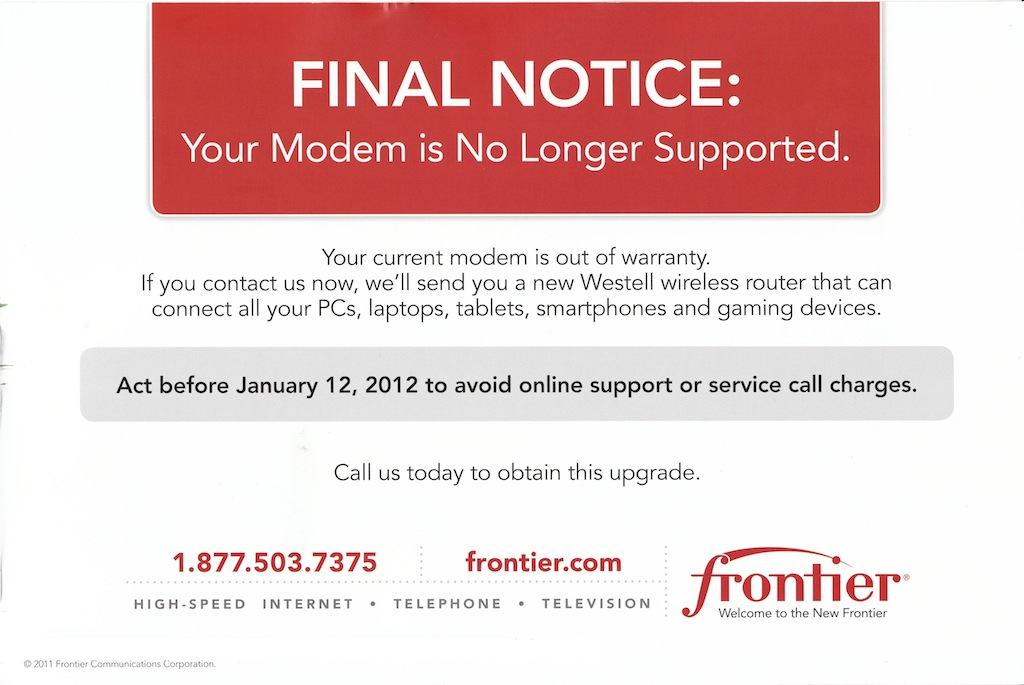CenturyLink is feuding with the mayor of Colorado Springs, Colorado over whether or not the company intends to roll out its Prism IPTV service in lower income neighborhoods in the city.
The phone company is planning expansion of its fiber-to-the-neighborhood television service in Colorado for the first time, but has run into problems negotiating a franchise agreement with city officials that guarantees equal access to the upgraded broadband, phone, and television service.
“To be candid, CenturyLink does not want to put in the franchise agreement any specificity as to serving lower-income neighborhoods,” Mayor Steve Bach said last Wednesday during a meeting with City Council. “I don’t know about you, but that doesn’t work for me.”
CenturyLink wants to secure a franchise agreement that will permit the company to gradually roll out their Prism service to 22 percent of the city of Colorado Springs. But the company has refused to commit to a specific percentage of homes in lower income neighborhoods the company will wire for the new service.
Bach has the apparent support of incumbent cable operator Comcast, who seems in agreement CenturyLink should deliver its service equitably across the city.
Comcast spokeswoman Cindy Parsons told The Gazette any new cable company should be held to the same standards as Comcast was.
“Just as Comcast was required to make video services available throughout the city, we believe a new entrant into the video business should also be held to those same regulatory requirements,” she said.
“I honestly thought we had reached an understanding about the language that was to be included in the agreement,” Mary LaFave, CenturyLink’s director for public policy told the newspaper. “What we have discussed with the city is something that we have never discussed (in other communities). I’ve never seen it before.”
The newspaper last week met with CenturyLink executives to discuss the dispute and found them to be unaccommodating. The newspaper issued an editorial critical of CenturyLink’s apparent unwillingness to get specific:
To lay fiber, the company needs to use public right-of-way. That means it needs permission of city government, in the form of a franchise agreement.
Allocation of right-of-way is a subsidy, given that companies are granted permission to use a public resource in pursuit of profits. As such, some politicians take quite seriously any request for an agreement.
Mayor Steve Bach went public this week with a concern that CenturyLink might choose to serve only the most affluent neighborhoods, giving no assurance to the city that it would invest in less advantaged areas. His concern has led to a proposed agreement in which CenturyLink would provide a “significant” amount of service to low-income areas.
[…] “What we have discussed with the city is something that we have never discussed. I’ve never seen it before,” said Mary LaFave, CenturyLink’s director for public policy.
Welcome to the new Colorado Springs. We don’t try to match best practices elsewhere. We try to surpass them.
In our meeting, a Gazette editorial board member expressed concern about a contract that relies on the wiggle word “significant.” That could mean 10 percent to some, 80 percent to others. It’s a recipe for potential consternation and even litigation. We suggested a contract that specified a percentage of service, even a very low percentage, to low-income neighborhoods. LaFave said no way.
Low-income households often buy cable. So Bach’s concern may be mostly political, as market demand will likely cause CenturyLink to reach into a cross section of neighborhoods.
Given this likelihood, and the heartfelt assurance that CenturyLink will serve a broad socioeconomic spectrum, it is hard to understand why the company balks at committing to a base-level percentage.
We urge City Council and Bach to approve a business-friendly agreement with a specified safety-net percentage of service that will go to low-income households. Set a number slightly below CentryLink’s anticipated service to low-income areas, but achieve contractual specificity.
When local government trades in right-of-way, it allocates a resource that belongs to every resident of Colorado Springs. A reasonable effort to protect them, with a contract that codifies at least the minimal goals stated by CenturyLink, makes good business sense. This is not just any old town, and it should not settle for just any old contract.
CenturyLink was already awarded a cable franchise in Monument and is seeking franchises in Fountain and unincorporated El Paso County. The company currently operates Prism in eight cities nationwide.


 Subscribe
Subscribe







